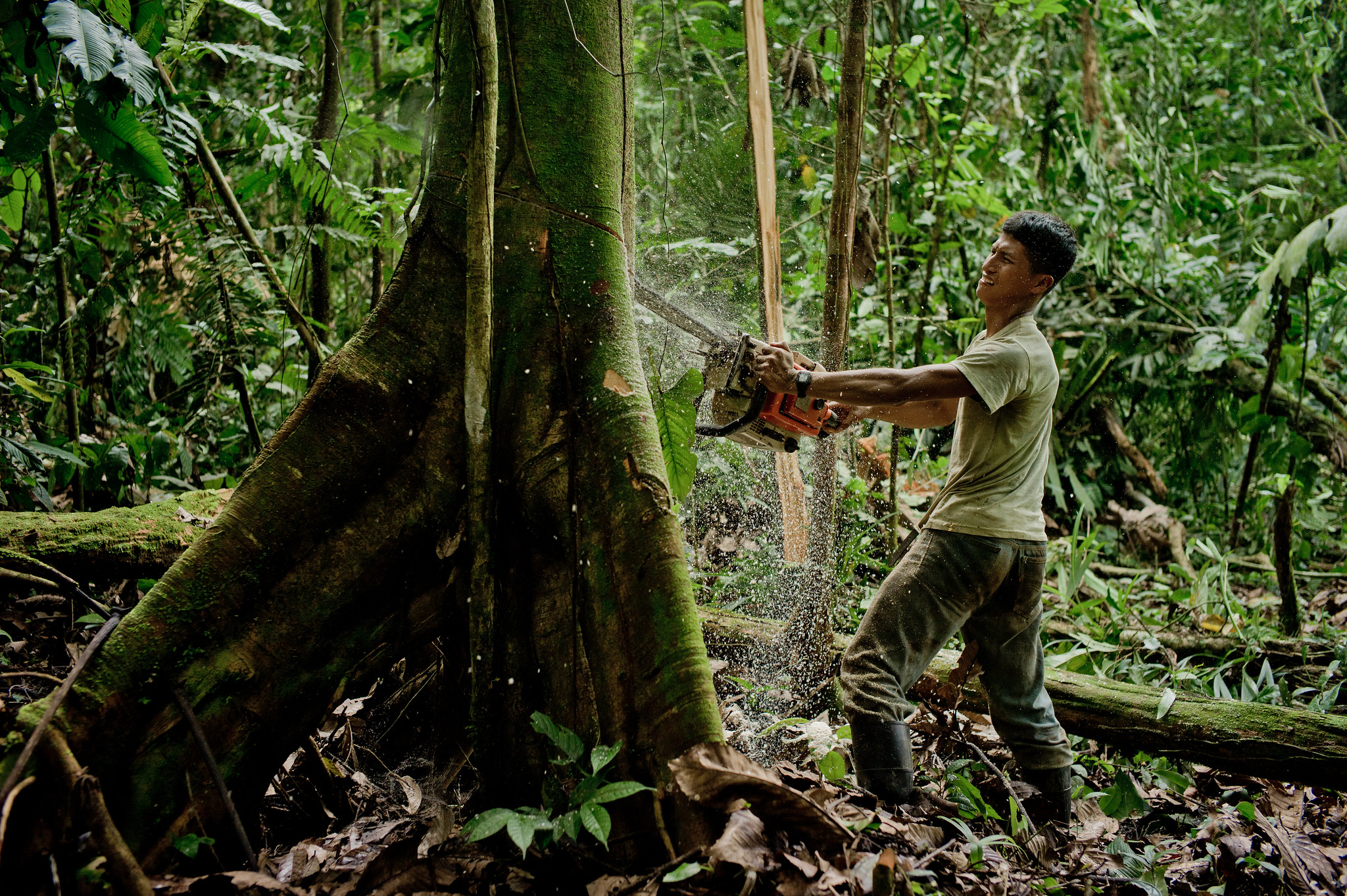
Why are tropical forests being destroyed?
Every year, humans continue to expand into large areas of tropical forests. The IPBES report published in 2019 noted that tropical forest loss between 1980 and 2000 was equivalent to three times the size of Germany.
Drivers of Deforestation
Tropical forests are being destroyed on a large scale worldwide. The main reasons are governance failures and the use of forest areas for agricultural lands and pastures.
What drives deforestation is a complex mix of many different actors and underlying causes, and the causes vary greatly from region to region.
- Commodities. Permanent deforestation is above all commodity-driven, tied mainly to the production of beef, soy beans, palm oil, and pulp & paper.
- Current economic systems. Our economies have failed to reflect the true value of nature and intact ecosystems. Trees tend to generate a higher price dead than alive.
- Land use policies often fail. Although there is great potential to increase production of food and commodities while reducing forest destruction, this potential is not utilised. Rather, new areas of forests are being cut down and replaced by agriculture and other land use.
Nonetheless, more people are increasingly becoming aware just how much we depend on forests and the “services” they provide, such as fresh water, clean air and biodiversity. The loss of nature is a threat to humans as well as to animals, and the loss of tropical rainforests results in significant Greenhouse Gas (GHG) emissions that drive climate change. It is estimated that more than 30 percent of total human-caused greenhouse gas emissions derive from Agriculture, Forestry and Other Land Use (AFOLU).
Africa
In large parts of Africa, deforestation is caused by simple subsistence farming. Rural poverty drive people to expand into the forests to produce food for their livelihoods. A constantly increasing intensity of the cultivation cycles leads to shorter fallow recovery periods, which means less time for trees and bushes to regrow and feed the soil. The result is poorer soil and yields, leading to an even greater demand for new land.
Asia
In (sub)tropical Asia, deforestation is mainly commodity-driven, caused by large plantations of crops such as oil palm. The oil from the oil palm fruit is added to a number of consumer goods and used as the basis for biofuels all over the world, thereby increasing the demand for the crop. The oil palm plantations in many regions have been established on former rainforest and peatland areas, causing deforestation and GHG emissions.
Latin America
In Latin America, both commodity-driven deforestation and deforestation as a result of shifting agriculture are important causes. However, in general terms, deforestation is linked in large part to cattle ranching. The global appetite for beef and soybeans is growing. Coupled with inefficient land use practices and local economic insecurity, this leads to deforestation.
Visit these websites for further information on this topic:
